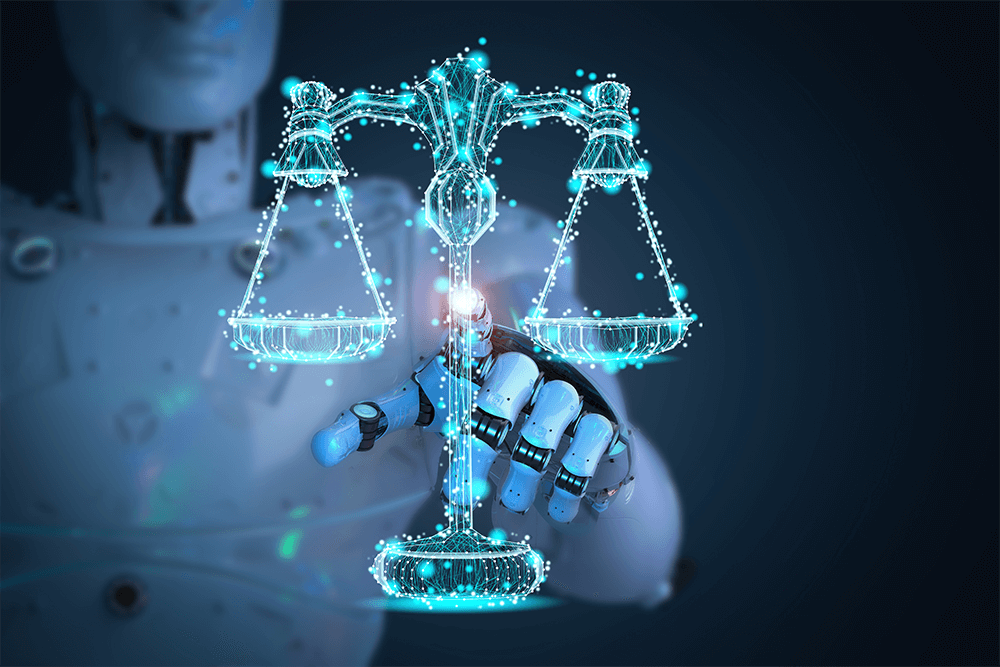Let’s face it Artificial Intelligence (AI) isn’t just knocking on the door of the legal profession anymore. It’s already walked in, pulled up a chair, and is waiting to work. And yet, many law firms and legal institutions are still acting like AI is some futuristic threat, not the powerful, game-changing ally that it actually is.
At Amilex Chambers, we say: It’s time we stop resisting and start evolving.
Some argue that AI will make lawyers lazy or even replace them altogether. We’ve heard this argument before. Remember when calculators first showed up in classrooms? Teachers panicked. They thought kids would forget how to do math. But math didn’t die it got faster, more precise, and more accessible. And those who never learned to use calculators? They just got left behind.
AI won’t replace lawyers. But lawyers who use AI will absolutely replace those who don’t.
Business law is fast, detailed, and constantly evolving. Whether you’re drafting complex contracts, reviewing compliance frameworks, or conducting due diligence, time and accuracy are non-negotiables.
How AI Is Transforming Legal Practice Today.
Here’s how AI is already reshaping the way legal professionals operate:
• Lightning-Fast Research: AI platforms like Case text, Harvey, or Lexis+ AI can comb through thousands of case laws, statutes, and legal doctrines in seconds. They deliver precise, contextual research results, helping lawyers build stronger arguments faster.
• Error-Free Drafting: Tools like DoNotPay, Lexion, and Spellbook (formerly Legal Robot) review legal documents for inconsistencies and red flags, helping to prevent costly mistakes and improve accuracy in contracts.
• Predictive Analysis: AI-driven tools such as Premonition or Blue J Legal can analyze how similar cases have played out in court and forecast potential outcomes. This gives lawyers an extra edge in strategy and client advisory.
• Client Support Made Simple: Imagine AI chatbots providing real-time legal guidance or document generation support to startups and SMEs. Tools like LawDroid and ChatGPT-powered assistants are making this a reality. That’s access to justice supercharged.
A Must for Law Students Too.
AI isn’t just for seasoned lawyers; it’s a must-learn skill for every law student. Imagine writing your thesis using ChatGPT or summarizing long judgments with Summize or BriefCatch. AI can help students understand complex legal principles faster, reduce study time, and boost overall academic performance.
Law schools should no longer treat AI as an “optional” module. Instead, it should be a core part of the legal curriculum. From using legal research platforms to understanding the ethics of AI in law, students need to be trained not just in theory, but in the digital tools that will define their careers.
Governments and Institutions: Time to Step Up.
While law firms and students can adapt quickly, real systemic change will only come when institutions and governments play their part. Here’s what we believe should happen:
• National AI Literacy Campaigns: Governments should launch initiatives that promote AI literacy within the legal profession, much like digital transformation efforts in healthcare and education.
• Legal Tech Funding & Grants: Provide grants or tax benefits for law firms and startups that adopt AI tools in ethical, productive ways. Innovation shouldn’t be stifled by cost barriers.
• AI Regulation & Standards: Develop clear regulatory frameworks around how AI can be used in legal practice. We need to protect privacy, ensure fairness, and define accountability when AI tools are involved in client decision-making.
• Law School Reform: Universities and law faculties should integrate AI ethics, usage, and case studies into the legal education system. The future of law needs more tech-savvy graduates, not just traditional legal theorists.
But Why the Fear?
Because change is uncomfortable. Law has always been about precedent, tradition, and caution. And that’s not a bad thing those principles have built the rule of law. But in a digital era where change is the only constant, caution can’t turn into paralysis.
AI won’t replace human judgment. It can’t replicate empathy, negotiation, or ethical reasoning. What it does is clear the noise. It automates the repetitive, the mechanical, and the mundane so lawyers can focus on what truly matters: advocating, advising, protecting.
At Amilex Chambers, We’re Already Ready.
We’re not waiting for the future we’re engineering it. As a firm rooted in business and corporate law, we understand our clients demand speed, intelligence, and precision. That’s why we’re adopting AI tools that allow us to deliver results faster and smarter.
Here’s how we’re leading the change:
• AI-powered research tools that allow our associates to cut down hours of legal digging into just minutes.
• Automated contract reviews and flagging systems to reduce errors and improve compliance.
• Secure, cloud-based collaboration tools to make communication with clients seamless.
• Ethical AI governance ensuring every tool we use meets our professional standards and keeps client confidentiality sacred.
Conclusion: The Future Is Now
The real question isn’t if AI belongs in legal practice it’s whether you’re ready to be part of the change. Law isn’t slowing down. Business is moving faster than ever. And the future? It won’t wait for anyone.
At Amilex Chambers, we choose to lead. We choose to evolve. And we’re inviting clients, students, policymakers, and fellow professionals to join us. Let’s build a legal system that’s not only future-proof but future-driven.












